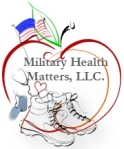 As we approach the end of Health Literacy Month, I would like to share some of my observations regarding health literacy and the military.
As we approach the end of Health Literacy Month, I would like to share some of my observations regarding health literacy and the military.
There is a scarcity of published medical literature concerning the association of ‘health literacy’ and military members. One study by Weld (2009) concluded a favorable health literacy rate among active duty service members as compared to the national population. This is in part due to ‘universal access’ to health care and structural access. In addition, the level of health literacy would be influenced by enlistment standards (both educational and language), but not socioeconomic factors.
Health literacy is an empowering factor that allows the patient to be an engaged and active participant in their health care rather than passive. When a service member goes from a ‘warrior’ to wounded, they lose their sense of control over almost everything and anything. While ‘loss of control’ is challenging to any human being, for a service member it can be quite devastating.
Health literacy / care barriers:
Civilians
- Uninsured or medically underserved
- Low English proficiency
- Low socioeconomic status
- Low educational skills
Military
- Access to quality care (shortages, e.g., mental health specialists).
- Frequent deployment cycles (when state-side, training, schools, etc.)
- Deployments (overseas)
- “Stigma”
- Locality (location near a health facility, whether a base or a VA facility).
- Chronic fear (for both the deployed and family members left behind).
While there are many factors that cannot be changed, in all the time I have worked with service members, vets and their families, I have consistently found one common element that indeed could be very effective in improving health outcomes and begin breaking down the barriers: education.

